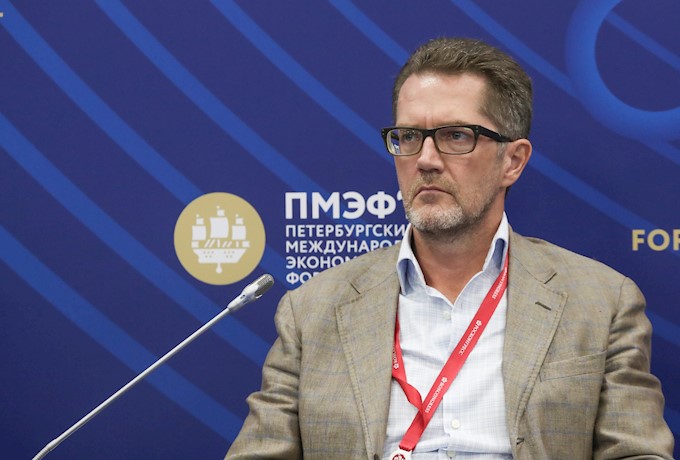
A Model for Raising Investment: Focusing on ESG
KEY CONCLUSIONS
Demand for solutions to environmental problems is increasing, Russian and global markets will continue to grow
“Before, most customers required optimization of the air environment quality. Now, there is a growing number of those who want to solve the problem of reducing energy consumption. It is influenced by the ESG agenda,” Dmitry Trubitsyn, Director of Development, CityAir.
“Today, if we talk about this agenda, the total amount of financial resources allocated to the implementation of the ESG policy globally reaches about 50 trillion dollars. This is a really huge number. And since 2014 this amount has tripled every year,” Alena Dolgova, Academic Supervisor, Oeconomicus Economic Club.
Young people are interested in the ESG agenda, ESG should turn into a value system
“Today, colleagues talked about young people. I myself am a young person and I know that for us the values of justice, conscience, environmental protection, human rights, and so on are crucial factors in decision making. For example, according to a recent study, 64% of millennials today will not accept a job offer if the potential employer does not practice CSR [corporate social responsibility, – Ed.],” Artem Metelev, Chairman of the Council, Association of Volunteer Centers; Founder, DOBRO.RU.
“For me, ESG is a value category, not an economic tool. If we consider ESG as an economic tool, then we either will discuss it in terms of being ‘fashionable’, and fashion changes sooner or later, or we will discuss it in terms of being ‘necessary’, and ‘necessary’ means regulation, control, punishment. <...> My point is that ESG should be born from within as a system of values, and not as some necessary, fashionable or obligatory standard, because then it will be a temporary thing,” Kirill Androsov, Executive Director, Atlas Asset Management Pte. Ltd.
“The values that form ESG factors – environmental responsibility, social responsibility, quality of management – they matter for young people. There is also a number of studies on various topics, and they show that Russians in general, and especially young people in particular, have this expectation,” Artem Metelev, Chairman of the Council, Association of Volunteer Centers; Founder, DOBRO.RU.
“It seems to me that the overall attitude in the society today and sufficient level of demand have already been formed. It means that ‘fashionable’ will gradually become a value, and this is good on its own. No need to look for drawbacks here,” Kirill Androsov, Executive Director, Atlas Asset Management Pte. Ltd.
PROBLEMS
It is necessary to create a regulatory field in Russia, train new personnel and move away from bureaucracy in making decisions related to environmental protection
“People need help in forming the values that we have started talking about. In this context, educational institutions play a special role. As for the personnel, education in the field of sustainable development in Russia began not so long ago and is probably going less actively compared to our European colleagues,” Anastasia Makarenko, Director, International Programmes; Deputy Director, European Studies Institute, Moscow State Institute of International Relations (University), Ministry of Foreign Affairs of the Russian Federation.
“My experience shows that environmental issues, social responsibility issues, labour safety issues always go all the way to the level of decision making. If it comes from the owner or from the top manager, it works. If it goes down to the level of the department for sustainable development or environmental protection, it does not matter what it is called – this is bureaucracy, these are just papers, nothing more than reports for the supervising authority,” Nikolay Krivozertsev, Co-founder, Director, Ecostandard Group.
“Speaking about the difficulties in implementing the ESG agenda that we face while developing our startup, I would probably like to focus on two things: first is the lack of a unified regulation. <...> Second, the imbalance of the indicators that we see in companies’ reports,” Daria Lipatova, Managing Partner, Telescope Global.
“There is a huge number of indicators behind ESG: emissions, discharges, special assessment of working conditions, production control, social programmes, CSR. This is a huge field for lobbying, protectionism, basically, any manupulations involving these indicators,” Nikolay Krivozertsev, Co-founder, Director, Ecostandard Group.
SOLUTIONS
It is necessary to create a unified and transparent system for evaluating the work of companies according to ESG standards and creating ESG ratings
“The number one task in our country is to create a transparent system for evaluating large companies, then, probably, for medium-sized businesses, large infrastructure facilities, so that they are really transparent. This way any investor, any citizen, or any supervisory authority understands that they are operating responsibly,” Nikolay Krivozertsev, Co-founder, Director, Ecostandard Group.
“First of all, I would like to see the implementation of the criteria for ESG projects developed by the Ministry of Economic Development; in particular, for the creation of Russian ESG ratings. We would also like to see control over the compliance after the traditional certification campaign ends,” Adelya Nabiullina, Activist, MGIMO Economic Club.
“We are creating a digital platform that will help to assess the environmental footprint of the business and compensate for it using special algorithms that are currently being developed by our team,” Daria Lipatova, Managing Partner, Telescope Global.
“The most important thing is that ESG does not become some kind of a fashionable trend that everyone talks about and then forgets all about it. We need to create a unified methodology to evaluate and compare these ESG ratings,” Nikolay Krivozertsev, Co-founder, Director, Ecostandard Group.
Startups, courses and educational programmes should become a tool for immersion in the ESG agenda
“We are planning to launch an affordable online course, where in a few hours anyone can understand how to implement everything that we are discussing here today. It needs to be clear where to start, what can get in the way, how to avoid risks, and so on,” Artem Metelev, Chairman of the Council, Association of Volunteer Centers; Founder, DOBRO.RU.
“I am happy to see that this agenda matters more and more. Russian educational institutions become interested in it. This September in MGIMO we will launch the first professional programme of this kind – management in sustainable development, which will include lectures not only by our professors, but also by experts, representatives of business and authorities,” Anastasia Makarenko, Director, International Programmes; Deputy Director, European Studies Institute, Moscow State Institute of International Relations (University), Ministry of Foreign Affairs of the Russian Federation.
Creation of an exchange for trading emission quotas and cooperation between Russia and foreign partners
“We would also like to see the stimulation for companies that commit to the ESG principles through tax incentives, concessional lending, and various kinds of subsidies. Also, we would also like to see Russia's active participation in shaping the international ESG agenda within the UN and other international organizations,” Adelya Nabiullina, Activist, MGIMO Economic Club.
“The second measure is very important, and there already are successful examples of its global implementation: for instance, an exchange for trading emission quotas. The expected volume of attracted investments is 3 billion dollars, which is quite substantial,” Vera Barkatina, Activist, MGIMO Economic Club.
For more information, visit the ROSCONGRESS.ORG Information and Analytical System.








